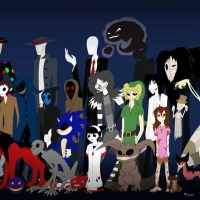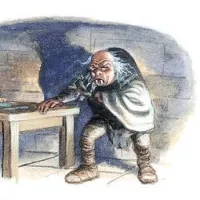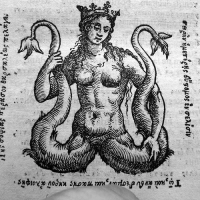The Mandela Effect refers to a phenomenon in which a large number of people share false memories of past events, referred to as confabulation in psychiatry. Some have speculated that the memories are caused by parallel universes spilling into our own, while others explain the phenomenon as a failure of collective memory. This form of collective misremembering of common events or details first emerged in 2010, when countless people on the internet falsely remembered Nelson Mandela was dead. It was widely believed he had died in prison during the 1980s. In reality, Mandela was actually freed in 1990 and passed away in 2013 – despite some people’s claims they remember clips of his funeral on TV. Self-described ‘paranormal consultant’ Fiona Broome coined the term ‘Mandela Effect’ to explain this collective misremembering, and then other examples started popping up all over the internet. If you have ever been convinced that something is a particular way only to discover you’ve remembered it all wrong, then it sounds like you may have experienced this phenomenon.
Fiona Broome coined the term Mandela Effect to describe a collective false memory she discovered at the Dragon Con convention, where many others believed that former South African President Nelson Mandela died during his imprisonment in the 1980s. That year, Broome launched the site MandelaEffect.com to document various examples of the phenomenon. For instance, it was wrongly recalled that C-3PO from Star Wars was gold, actually one of his legs is silver. Many also falsely remember Darth Vader uttering the line “Luke, I am your father” during a fight with the hero in The Empire Strikes Back (the villain does not actually use his son’s name in the scene). Likewise, people often wrongly believe that the Queen in Snow White says, “Mirror, mirror on the wall”. The correct phrase is “magic mirror on the wall”. Other widely held false memories include various nonexistent Star Trek episodes, the death of the Reverend Billy Graham and simulations of the 1997 Princess Diana car crash being mistaken regularly for real footage. In 2012, a post entitled Berenstein Bears: We Are Living in Our Own Parallel Universe was published on the blog The Wood Between Worlds, which described a widespread memory of the children’s book series Berenstein Bears as ‘Berenstain,’ explaining the false memory as the result of an alternate reality spilling over into our own.
Broome explains the Mandela Effect via pseudoscientific theories. She claims that differences arise from movement between parallel realities (the multiverse). This is based on the theory that within each universe alternative versions of events and objects exist. Other theories propose that the Mandela Effect evidences changes in history caused by time travellers. Then there are the claims that distortions result from spiritual attacks linked to Satan, black magic or witchcraft. But although appealing to many, these theories are not scientifically testable. Psychologists explain the Mandela Effect via memory and social effects – particularly false memory. This involves mistakenly recalling events or experiences that have not occurred, or distortion of existing memories. The unconscious manufacture of fabricated or misinterpreted memories is called confabulation. In everyday life confabulation is relatively common. False memories occur in a number of ways. When it comes to the Mandela Effect, many examples are attributable to so called “schema driven errors”. Schemas are organised “packets” of knowledge that direct memory. In this way, schemas facilitate understanding of material, but can produce distortion. Frequently reported errors can then become part of collective reality and the internet can reinforce this process by circulating false information. This is not to say that the Mandela Effect is not explicable in terms of the multiverse. Indeed, the notion of parallel universes is consistent with the work of quantum physicists. But until the existence of alternative realities is established, psychological theories appear much more plausible.

















One thing that has been established is proof that the changes have occurred in a select few cases. We may not know, “the why”, but we have solid proof of a number of events.
completely agree. something definitely happened. some people pinpoint something in 2016. but i’ve never been able to make up my mind. still doing research and probably always will.